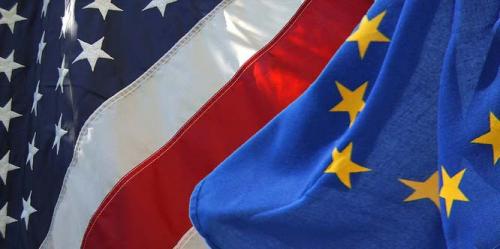Are transatlantic relations in another crisis, perhaps a slow rolling one, or are we at the opening of a new and more promising era for the United States, Canada, and their European partners? Decisions on both sides of the Atlantic in the next few years will determine the fate of America’s most important alliance.
I must admit to having written about such “crises” for many years, first when I served as the NATO analyst in the CIA’s Office of Current Intelligence, more than 40 years ago, and then for many years when I was the lead NATO expert for Congress at the Congressional Research Service. Past crises, instigated by a variety of events that troubled transatlantic ties, such as the Soviet invasion of Afghanistan (1979), the decision to deploy new intermediate range nuclear missiles to Europe (early 1980s), and more recently the US invasion of Iraq (2003), revealed how differently security challenges can be perceived depending on which side of the Atlantic one sits. But they also demonstrated that while crises expose profound differences they do not necessarily lead to permanent disaffection.
The current “crisis” in the transatlantic alliance does not result from a single event or disagreement. Rather, it is the product of a confluence of factors, some with deep historical roots and others of more contemporary origins.
One of the more-or-less permanent factors is known as the “burden sharing” debate. From the Western shores of the Atlantic, this issue focuses on how much more the United States contributes to the NATO alliance than do its European partners. While Europeans made important contributions in Afghanistan, some allies were much more willing and effective contributors than others. In 2011, outgoing Secretary of Defense Robert Gates left office with a shot across the European bow warning that the alliance was now divided between those allies who were willing and able and those who were not.
But the burden sharing debate also features some important differences among the Europeans themselves about who is willing to spend precious Euros on defense and who is willing to put troops in harm’s way. Divisions among the Europeans were illustrated most recently by the fact that some (France, the UK) led the way in the 2011 Libya operation against Gaddafi’s Libya while others abstained (most notably Germany). Such differences have confounded efforts to produce a truly unified European Common Security and Defense Policy.
Contemporary economic and fiscal problems in the United States and Europe have only intensified the problem. The United States is with great difficulty and much political posturing trying to come to terms with the need to reduce the government deficit, and defense efforts will not avoid the ultimate budget axe. In Europe, even allies who share the US appreciation for the need to maintain effective military capabilities find themselves trying to produce “smart reductions” rather than managing a “smart defense,” as NATO Secretary General Anders Fogh Rasmussen would prefer.
The Obama administration added to the sense of crisis when, in 2011, it suggested the need to “pivot” American defense policy toward Asia and, implicitly, away from Europe and the Middle East. As soon as the administration realized that its choice of the term “pivot” was ill-advised, it began talking about “re-balancing.” No matter the terminology, the move raised major questions on both sides of the Atlantic about US intentions toward NATO. Did the administration hope that the Pivot would provide the stimulus required for the Europeans to “get their act together,” as a follow-on to the Gates blast, or were the unintended consequences of uncertainty about US intentions simply not anticipated?
That is some of the bad news. On the other hand, there are some bright spots on the horizon. One of those is word of a new round of US-European negotiations seeking to produce what Obama referred to in his State of the Union address as a “comprehensive Transatlantic Trade and Investment Partnership with the European Union.” Even though hard negotiations will be required to produce an outcome, there is wide recognition on both sides of the Atlantic that such a project could produce serious gains in jobs and economic growth for the United States and Europe. At the very least, this initiative shines a more positive light on the continuing importance of transatlantic relationships.
Another bright sign could be found in a recent New York Times interview in which French Defense Minister Jean-Yves Le Drian suggested a relatively pragmatic approach to the future of French defense, anticipating more reliance on coalitions of the willing supported by the framework provided by NATO’s Integrated Command Structure. Le Drian’s approach does not promise European miracles in the burden sharing context, certainly not in the current economic environment, but it does suggest a willingness to seek practical forms of cooperation rather than being hung up on national sovereignty when it comes to buying weapons systems or on debates about whether missions should be directed by the European Union or by NATO.
It also has to be counted as a bright spot that today’s crisis may be resolved as past crises have: with a reaffirmation of the need for North America to remain actively linked to the European allies in financial, economic, political and military contexts. To some of us admitted Atlanticists, this logic seems inescapable. It remains true, however, that the expressions of common interests and values that still reside in the 1949 North Atlantic Treaty have to be revalidated by successor generations on both sides of the Atlantic. Will these new decision makers and opinion shapers come to the same conclusions as did my generation? We shall see.
Stanley R. Sloan is a visiting scholar at Vermont’s Middlebury College and author of “Permanent Alliance? NATO and the Transatlantic Bargain from Truman to Obama.“
Image: Transatlantic%20Free%20Trade.jpg
